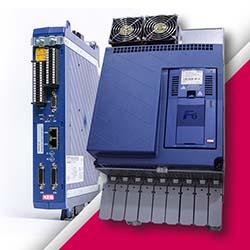Keychain Pulls Further Ahead of IOTA in Blockchain Race to Small IoT
Keychain demonstrates to the Japanese government that blockchain technology is compatible with small Internet of Things (IoT) devices, using a fraction of the memory used by IOTA and solving the long-standing riddle of how to leverage blockchain technology in industrial IoT.
On February 15th, Keychain, Singapore-based blockchain technology company, demonstrated a ground-breaking release of its IoT data security platform to the Japan Ministry of Economy, Trade and Industry (METI) and to the New Energy and Industrial Technology Development Organization (NEDO) in Japan. The occasion marked the creation of the world's most lightweight, blockchain-based, data provenance software in terms of device memory required.
During the demonstration, Keychain's software consumed less than 8 MB of resident memory, more than 180 times less than the 1.4 GB used by IOTA software. Keychain's demonstrated its software on the Raspberry Pi Zero, an IoT device with a RAM capacity of 512 MB RAM and a cost of only about $5 USD. Keychain's achievement brings to the market a new security infrastructure that when run on small and cheap hardware, increases cyber security, enables new data markets, and significantly increases the profit margins of IoT data projects.
A key problem in IoT cyber security is known as the data provenance problem, a problem that pertains to questions such as: 1) "Who can access certain data?", 2) "Who/what device created the data?", and 3) "Has the data been changed since its creation?" As data passes through different networks and is stored in various places. While most IoT security solutions focus on protecting the device from hackers, Keychain solves this provenance problem while removing dependencies on third parties such as certificate authorities and hardware SIM providers.
Keychain provides full data security, including confidentiality and authenticity. Thus, Keychain enables IoT capabilities that go well beyond other data-centric blockchain projects that merely embed a hash of data on their blockchains. Achieving this for IoT devices that are small is challenging. Keychain's unique feature set includes the following :
1. Machine identity creation and management
2. End-to-end encryption
3. Digital signatures
4. Historical digital signature attribution
5. Client-controlled key rollover and automated counterparty notification
6. Multiparty secure data exchange
7. Realtime: hundreds of messages per second per device
8. Strong security of proof-of-work consensus
9. Blockchain scalability by decoupling machine-to-machine data exchange from blockchain transactions
10. Supports Linux/Windows/Android/iOS operating systems and x86/x64/ARM-32/ARM-64 CPU architectures natively
11. Requires only 8 megabytes RAM for the client gateway, thus can be deployed in significantly more real-world IoT scenarios than any other blockchain technology
Keychain's innovative technology is a game-changer in several industrial and commercial use cases:
1. Automated factories and Industry 4.0
2. Connected cars
3. Smart city/buildings
4. Security cameras
5. Point of sale devices / ATMs
6. Robotics/drones
Achieving the small memory footprint of the Keychain client was made possible in part by a research grant provided by NEDO. Keychain was awarded the grant by NEDO as a result of winning the Jury Grand Prize at the Third IoT Lab Selection competition organized by the IoT Acceleration Lab and the Japan METI in March 2017.
Keychain is a Singapore-based blockchain technology company that fortifies operational integrity for finance, industry, and enterprise. Keychain provides global, blockchain-based, data-provenance platform and solutions to its clients. Keychain was founded by Jonathan Hope and Kazuyoshi Mishima in 2016.
For any questions, please contact info(at)keychain.jp. "Raspberry Pi" is a trademark of the Raspberry Pi Foundation.
Featured Product

